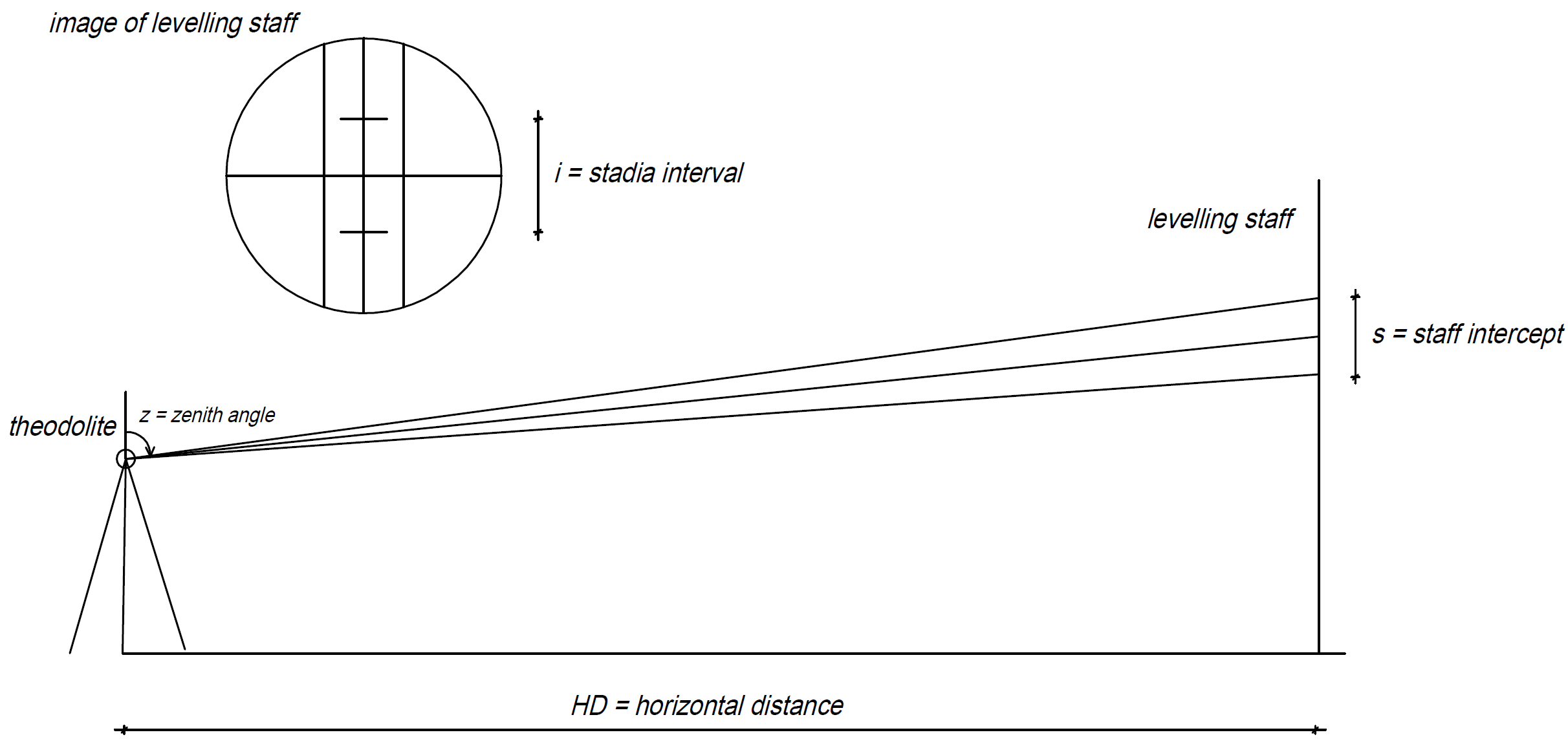Lecture notes
Lecture notes - Log in
7. Tacheometry
Greek word, meaning: quick measurement
definition: horizontal position (polar method) and height (trigonometric heighting) measurement using one instrument (named tacheometer or total station nowadays) at the same time.
Stadia tacheometry (with surveyor's level or theodolite)

where  typically in case of suveyor's level zenith angle is 90 degree by definition
typically in case of suveyor's level zenith angle is 90 degree by definition
- digital theodolite
- eletromagnetic distance measurement (EDM) unit
- built in computer
- data storage
Principle of code (time) and phase range measurement
Steps of tacheometry
- setting up the instrument
- determination the height of the trunnion axis
- orientation
- measuring the detail points
- checking the stability of the horizontal circle and height of collimation
Determination of the height of the trunnion axis:

Result of tacheometry: list of coordinates containing all the detail points
Additional information:
- point codes plus attributes
- sketch
- drawing the map on the display of the total station
Comparison of the techniques, pros and cons
Extra functions:
- EDM in reflectorless mode
- touch-screen
- servo motors
- automatic target recognition
- one man system
- built-in centimeter accurate GPS
- built-in digital camera
the demonstration of robotic total stations, automatic grid measurement of a wall using a total station.



